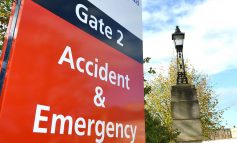Recipients of an organ donation, and the former Chair of B&NES Council, Councillor Rob Appleyard, are working with the Royal United Hospital to raise awareness of the NHS Organ Donor Register.

By manning an information stand in the hospital’s atrium during British Transplant Week, from 8-17th July, they’ll be advising people how only 31% of the population have joined the Organ Donor Register.
More than 10,000 people in the UK currently need a transplant. Of these, 1,000 a year – that’s three a day – will die because there are not enough organs available.
Amanda Fraser, a mother of three, from Bath, understands how important it is to register as an organ donor, as she received a liver transplant in April last year. The need for a transplant came out of the blue for Amanda, who had previously been fit and healthy until she had a severe reaction to antibiotics.
Amanda said: “Once a life has ended, as awful as that sounds, that person can still pass on a life-saving or life-enhancing gift to someone else, by donating an organ. I’m hoping that lots of people visit the information stand at the RUH and I will be urging them to seriously think about registering as an organ donor, or if they are thinking about it, to share that knowledge with friends and family.”
Dr Kim Gupta, a Consultant in Anaesthesia and Intensive Care, and Clinical Lead for Organ Donation at the RUH, said: “Transplants are one of the most miraculous achievements in modern medicine. But they depend entirely on the generosity of donors and their families who are willing to make this life-saving or life-enhancing gift to others.
“It can be hard to think about what you want to happen to your body after you die, but being a donor is a generous and worthwhile decision that can be a life saver.
“Increased publicity and awareness of the importance organ donation has played a part in a helping the hospital’s organ donation rates to more than double over the past five years. However, nearly half of all families approached about the possibility of organ donation when a loved one has died; still refuse to give consent, mainly because they are not sure what their loved one would have wanted.
“If you are keen to donate your vital organs after your death, then it is really important to not only place your name on the Organ Donation register, but also to ensure that you share your wishes with your nearest and dearest.”
You can help turn people’s good intentions about organ donation into action by registering on the NHS Organ Donor Register. If you have already registered, then do ensure your details are up to date. Visit http://www.transplantweek.co.uk



